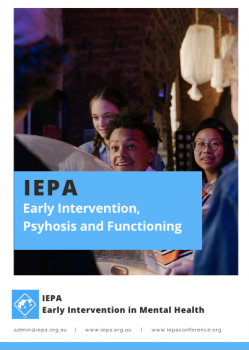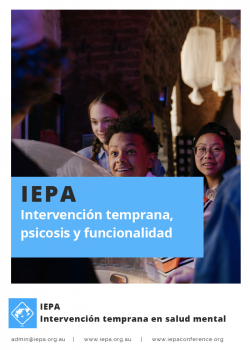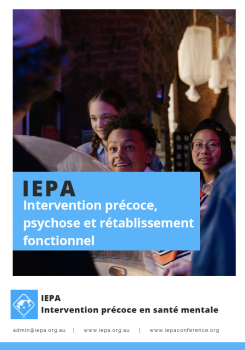May 24, 2021
Posted by:
IEPA
By Eoin Killackey
There is an increasing acknowledgement of the importance of functional recovery for people with lived experience of schizophrenia and psychosis related conditions.
In large part this is driven by listening to user voices and putting at the centre, the lived experience and beliefs about what they would like their recovery journeys to be like and their goals.
It is also driven from a human rights perspective in that people who wish to work, study, or participate and contribute in other ways in their communities and societies have a right to do so and a mental health problem should not be an obstacle. Finally, it is driven by the greater economic return on investment in treatments that results from helping people make functional recoveries.
The three pieces that follow here remind us of a number of important considerations in assisting people with their functional recoveries. The first consideration is the importance of early intervention, support and access to the right and evidence-based treatments. Reducing the amount of time that an individual has an untreated illness is crucial. During periods of untreated illness functional damage often occurs and accrues. This damage can take the form of disengaging with education or employment, becoming socially isolated and negatively impacting relationships with family and friends, which can increase the likelihood of further difficulties and social exclusion. So, getting in as early as possible is very important.
The second consideration is that once early intervention has occurred, recovery is best supported by a comprehensive range of interventions that ideally are tailored to the individual needs and goals of the service user. For many, this will include identification of the right medication and the best way to engage with this treatment. For many, comprehensive treatment will also include psychological and talking therapies, and other social and functional recovery-oriented interventions. History has shown that any one treatment, in isolation, will rarely lead to optimal functional or social recovery for most people.
A third consideration is to ensure to assess for, monitor and target different symptoms but particularly negative symptoms. These symptoms often get less considered in acute treatment but are great obstacles to functional recovery if not attended to. A range of intervention approaches must also be utilised to address negative symptoms.
Finally, and perhaps most important is hope. As David Fowler notes, hope must be conveyed to the person with the illness and to their family that recovery is possible and that they will be provided with the range of interventions to help them achieve it.
Eoin Killackey
President, IEPA Early Intervention in Mental Health


